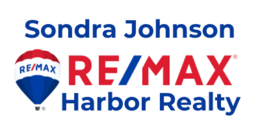
Investing in real estate can be a lucrative way to generate income and learn more about the financial world. There are many choices available in both residential and commercial properties. Many prefer commercial property investment while others advise against it. With so many details, it's difficult to decide what’s best for you. Here are some of the major pros and cons of investing in commercial real estate.
Commercial Property Investment Pros
Steady Income Potential - Commercial property investments usually have a steady ROI when compared to residential properties or other types of investment. According to Forbes, the average annual rate of return for commercial real estate investment over the last 20 years is 9.5%. Most investors find the returns are more steady and predictable than other types of investments.
Shared Priorities - When you invest in a retail property you’ll share some of the same goals as your tenants. Retail businesses know that the location and public image matter to the success of their business. Therefore, they are more likely to care about things like upkeep, maintenance and other factors visible to the public. This will help you maintain and even increase the value of your investment.
Real Estate Is Tangible - Unlike stocks and bonds, a commercial property is a tangible asset. This gives you the opportunity to visit a property in person to assess the details. Investing in property is investing in a limited resource. After all, there is only so much property space available. This makes commercial real estate especially attractive to investors because land will always keep value regardless of economic situations.
Commercial Property Investment Cons
Larger Upfront Investment - Typically it costs more to get started in commercial real estate when compared to residential. Purchasing or investing in a commercial property not only requires more capital up front but also comes with the potential for large future expenses like maintenance and repairs. Commercial property owners have all the same maintenance expenses as residential owners, but on a much larger scale.
You Can’t Do It Alone - You will probably need to hire professional help to maintain your commercial property. Even if you’re an avid DIY expert, commercial properties can be subject to strict rules about licensing and permits for things like construction. Hiring help can add up over time and also cost a bundle in an emergency.
Risky - Commercial properties are more vulnerable to damage and other problems just by nature of being exposed to the public. The more people coming and going, the higher risk of sustaining damage, whether by accident or vandalism. This also makes you more financially vulnerable if an incident or injury occurs on your property. Everything from parking lots to stairways holds a potential risk even when you take all precautions.
Ultimately, the decision about whether commercial property investment is right for you depends on many factors. While these are some benefits and disadvantages worth considering, your own research will always provide a more accurate answer. Look into your options and consult a financial professional for any investment advice.





